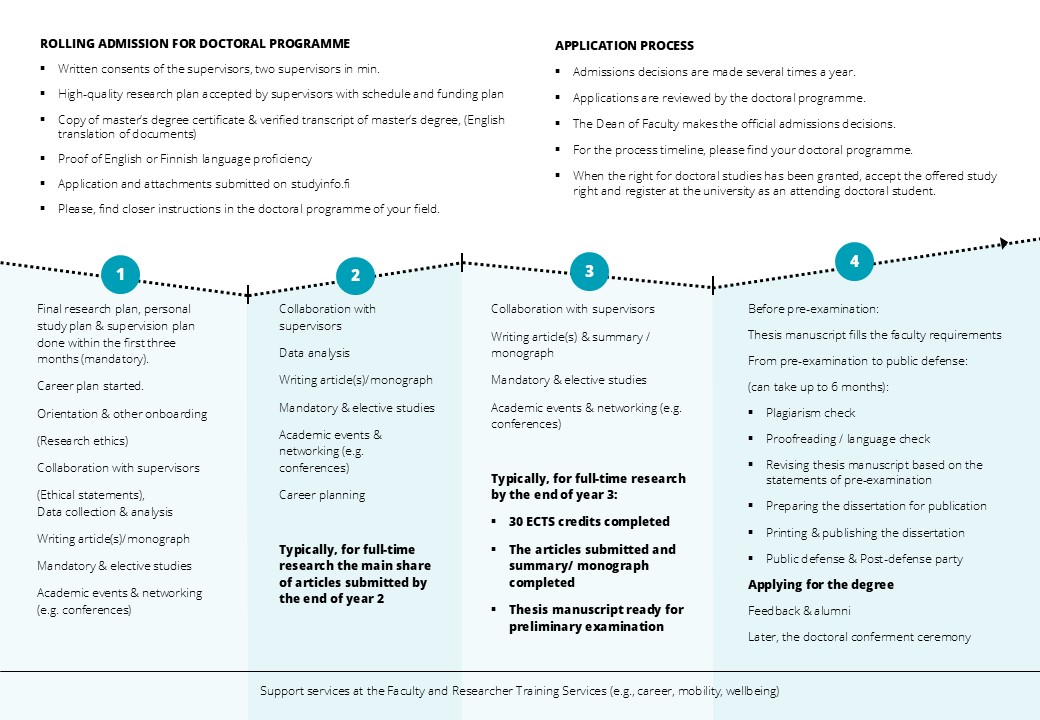The aim of scientific doctoral education is to educate professionals in research who have the capacity to work independently in solving scientific problems and producing new scientific knowledge. A doctorate can be a qualification requirement for some positions.
Doctoral education at the University of Eastern Finland
The University of Eastern Finland operates scientific postgraduate studies in seven doctoral programmes in our four faculties. The programmes are responsible for the organisation of subject-related doctoral studies and the supervision of doctoral researchers. Each doctoral programme has a designated head, board, and a coordinator.
The Researcher Training Services (formerly known as the Doctoral School) is responsible for providing researcher’s transferable skills courses to all of the university’s doctoral researchers, as well as for general development of doctoral education. Some of the courses are also open for postdoctoral researchers.
The Researcher Training Services is led by Vice Rector for Research Jussi Pihlajamäki with the help of a board, and a coordinator, Head of Academic Affairs Kaisa Laitinen and Academic Affairs Specialist Katri Antin. University Lecturer Merja Lyytikäinen is responsible for general development, teaching and for transferable skills curriculum. University Lecturer Ira Virtanen teaches, and develops supervision and peer mentoring practices and training to support well-being at work at various research levels. University Lecturer Tuomas Pernu is responsible for teaching research ethics and philosophy of science.
Degree Structure
A doctoral degree consists of a doctoral dissertation, and compulsory doctoral studies (30 credits) that support the research work and development of expertise. The aim is to complete doctoral studies in 3–4 years.
There are no tuition fees in doctoral programmes. It is important to note that the study right for doctoral degree does not guarantee funding for the research project. Please, get to know and plan for funding options before applying.
Doctoral dissertation
The objectives of a doctoral dissertation are to demonstrate the capacity of the doctoral researcher to conduct independent research of academic weight/academic significance in their field of research. This includes the ability to critically utilize relevant literature and research methods in producing new scientific knowledge. The dissertation is to be defended in a public examination / public defence.
The two main dissertation formats are a monograph and an article-based dissertation. The monograph is a scientific presentation based on independent research that promotes knowledge in the discipline in question. The article-based dissertation consists of peer reviewed research articles contributing to the same, larger research problem and a conclusion based on the papers. More detailed criteria can be found in the webpage of each doctoral programme, under the heading Requirements for doctoral dissertation.
Doctoral studies
Doctoral studies consist of discipline-specific studies and transferable skills studies. The exact study requirements vary among the doctoral programmes. There are approximately 22 different transferable skills courses offered. They include, for example, courses is academic communication, project management and working in teams, research ethics, and career skills.
Doctoral education in four years


